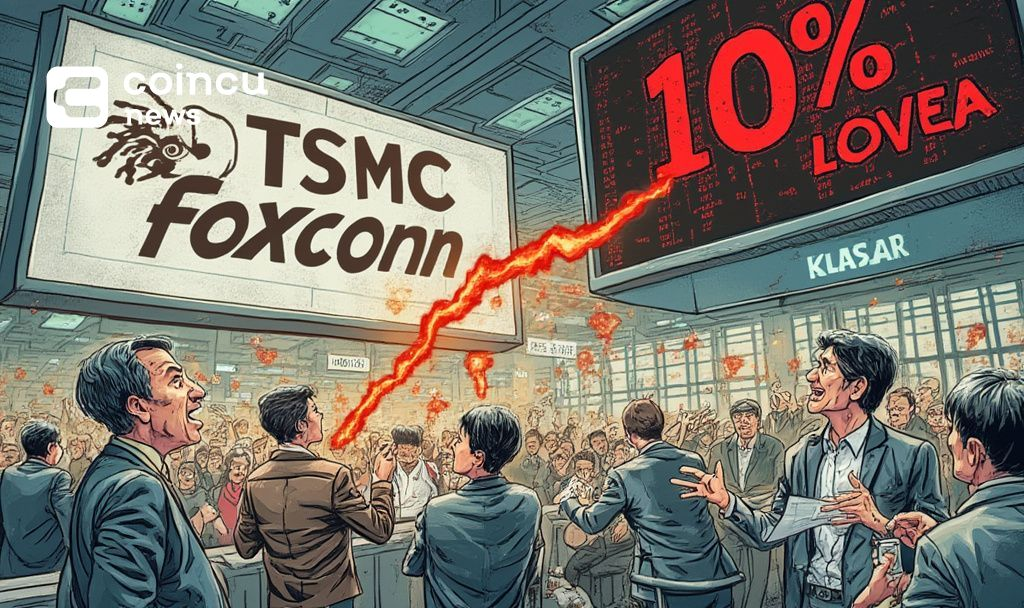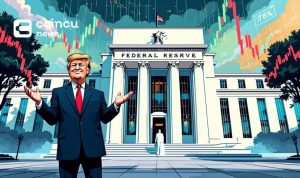- TSMC and Foxconn shares plunge, triggering a Taiwan stock market halt.
- Market reactions underscore concerns over global economic stability.
- Authorities implement measures to stabilize financial systems.

On April 7, 2025, Taiwan’s stock market triggered a circuit breaker after significant declines in TSMC and Foxconn shares, almost dropping 10% each. This event underscores market volatility amid ongoing global tensions impacting economic stability.
TSMC and Foxconn’s 10% Stock Drop Triggers Circuit Breaker
The Taiwan stock market halted after TSMC and Foxconn shares fell sharply, a reflection of broader global economic instability. Both companies, leading in the tech supply chain, triggered market fears about financial resilience. As primary contributors to the Taiex index, their declines significantly affected its performance.
Investor Reactions and Historical Market Resilience
Market stabilization measures were immediately implemented by Taiwanese financial authorities. These actions were crucial to curb panic selling and include interventions such as ensuring liquidity. Although no direct statements from TSMC or Foxconn were released, government efforts to stabilize highlighted proactive crisis management.
“We are prepared to implement market stabilization measures to prevent panic selling and maintain liquidity during this turbulent time.” — Taiwan Financial Authorities, Government Officials, Focus Taiwan
Investor sentiment reflected cautious optimism, evidenced by the behavior in AI-related stocks. The tech sector’s intrigue attracted bargain hunters, bolstered by official announcements. Community discussions suggested concerns over prolonged downturns, indicating market sensitivity to geopolitical uncertainties.
Did you know? Taiwan’s stock market has been a barometer for geopolitical tensions, notably affected during 2020’s global economic concerns and U.S. economic policies, mirroring today’s volatile financial landscape.
Historically, Taiwan’s market fluctuations have followed economic and geopolitical shifts. In recent years, government interventions have often revived market stability amid fears. Experts suggest financial pressure on projects like TSMC’s U.S. operations under the CHIPS Act could alter investment strategies.
Financial and geopolitical challenges also risk impacting U.S.-Taiwan economic relations, particularly for enterprises investing overseas. Similar past events have led to swift recovery in stock values, encouraging analysts to predict potential rebounds post-market stability interventions.























